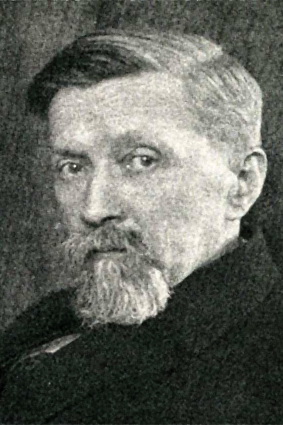Ovide Decroly
Ovide Decroly (1871-1932) was a Belgian educator and psychologist, renowned for his innovative theories on child-centered education and for his contribution to the development of the Decroly Method, a holistic approach to education that emphasizes the integration of students' interests and needs into the learning process. His work has had a significant impact on the field of educational psychology and modern pedagogical methods.
Biography[edit | edit source]
Ovide Decroly was born on July 23, 1871, in Renaix, Belgium. He initially studied medicine at the University of Ghent, where he developed a keen interest in neurology and psychology, particularly in the areas of child development and special education. After completing his medical degree, Decroly dedicated himself to the study and treatment of children with disabilities. In 1901, he founded the École de l'Ermitage in Brussels, a school that served as a laboratory for his educational experiments and innovations.
Educational Philosophy[edit | edit source]
Decroly's educational philosophy was deeply influenced by his background in psychology and his clinical observations of children. He believed that education should be tailored to the natural interests and developmental stages of the child, rather than forcing children to adapt to a rigid curriculum. Decroly proposed that learning should be organized around four fundamental needs of the child: food, security, work, and play. He also introduced the concept of "centres of interest," around which educational activities could be organized to stimulate the curiosity and engagement of students.
The Decroly Method[edit | edit source]
The Decroly Method is characterized by its focus on the child as an individual and its emphasis on learning through exploration and discovery. Key components of the method include: - **Globalization**: The integration of subjects and disciplines into thematic units that relate to real-life situations and the interests of the child. - **Centers of Interest**: Organizing learning activities around themes or topics that are relevant and engaging to the students. - **Activity-Based Learning**: Encouraging hands-on experiences, projects, and experiments as a means of learning. - **Socialization**: Promoting cooperative learning and social interaction among students.
Impact and Legacy[edit | edit source]
Ovide Decroly's work has left a lasting impact on the field of education. His ideas about child-centered learning and the importance of adapting education to the needs and interests of the individual learner have influenced various educational movements and reforms around the world. The Decroly Method continues to be applied in some schools today, testament to its enduring relevance and effectiveness.
Decroly's contributions to educational psychology and special education have also been recognized as pioneering. His holistic approach to education, which considers the emotional, social, and physical development of the child, has paved the way for more inclusive and adaptive educational practices.
See Also[edit | edit source]
Search WikiMD
Ad.Tired of being Overweight? Try W8MD's NYC physician weight loss.
Semaglutide (Ozempic / Wegovy and Tirzepatide (Mounjaro / Zepbound) available. Call 718 946 5500.
Advertise on WikiMD
|
WikiMD's Wellness Encyclopedia |
| Let Food Be Thy Medicine Medicine Thy Food - Hippocrates |
Translate this page: - East Asian
中文,
日本,
한국어,
South Asian
हिन्दी,
தமிழ்,
తెలుగు,
Urdu,
ಕನ್ನಡ,
Southeast Asian
Indonesian,
Vietnamese,
Thai,
မြန်မာဘာသာ,
বাংলা
European
español,
Deutsch,
français,
Greek,
português do Brasil,
polski,
română,
русский,
Nederlands,
norsk,
svenska,
suomi,
Italian
Middle Eastern & African
عربى,
Turkish,
Persian,
Hebrew,
Afrikaans,
isiZulu,
Kiswahili,
Other
Bulgarian,
Hungarian,
Czech,
Swedish,
മലയാളം,
मराठी,
ਪੰਜਾਬੀ,
ગુજરાતી,
Portuguese,
Ukrainian
Medical Disclaimer: WikiMD is not a substitute for professional medical advice. The information on WikiMD is provided as an information resource only, may be incorrect, outdated or misleading, and is not to be used or relied on for any diagnostic or treatment purposes. Please consult your health care provider before making any healthcare decisions or for guidance about a specific medical condition. WikiMD expressly disclaims responsibility, and shall have no liability, for any damages, loss, injury, or liability whatsoever suffered as a result of your reliance on the information contained in this site. By visiting this site you agree to the foregoing terms and conditions, which may from time to time be changed or supplemented by WikiMD. If you do not agree to the foregoing terms and conditions, you should not enter or use this site. See full disclaimer.
Credits:Most images are courtesy of Wikimedia commons, and templates, categories Wikipedia, licensed under CC BY SA or similar.
Contributors: Prab R. Tumpati, MD

